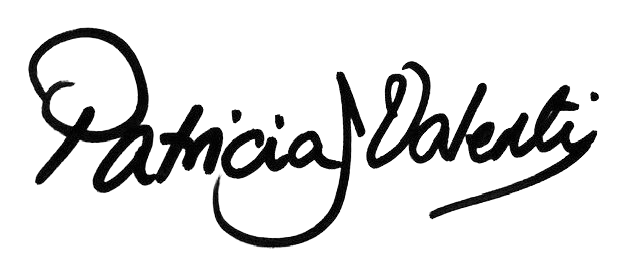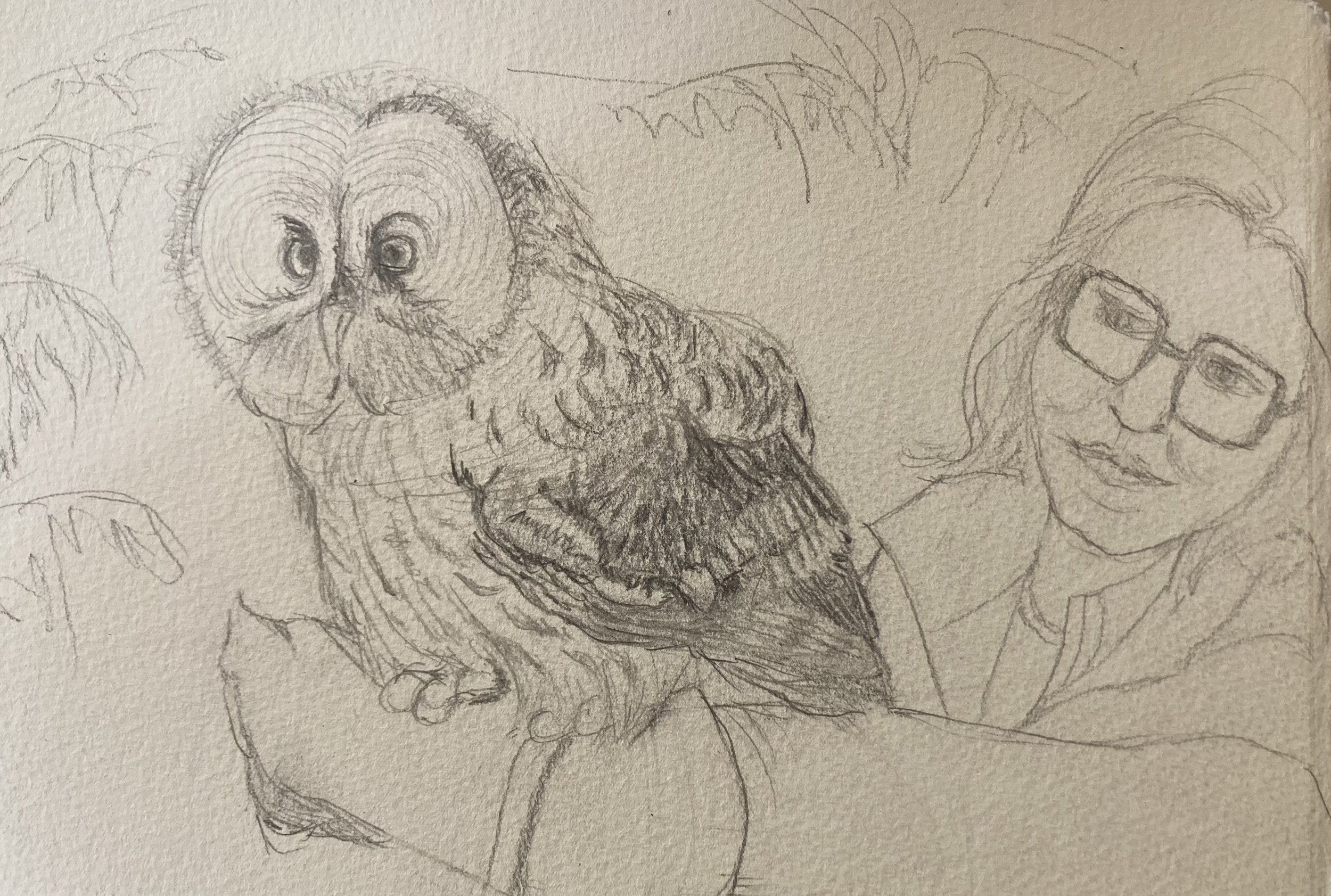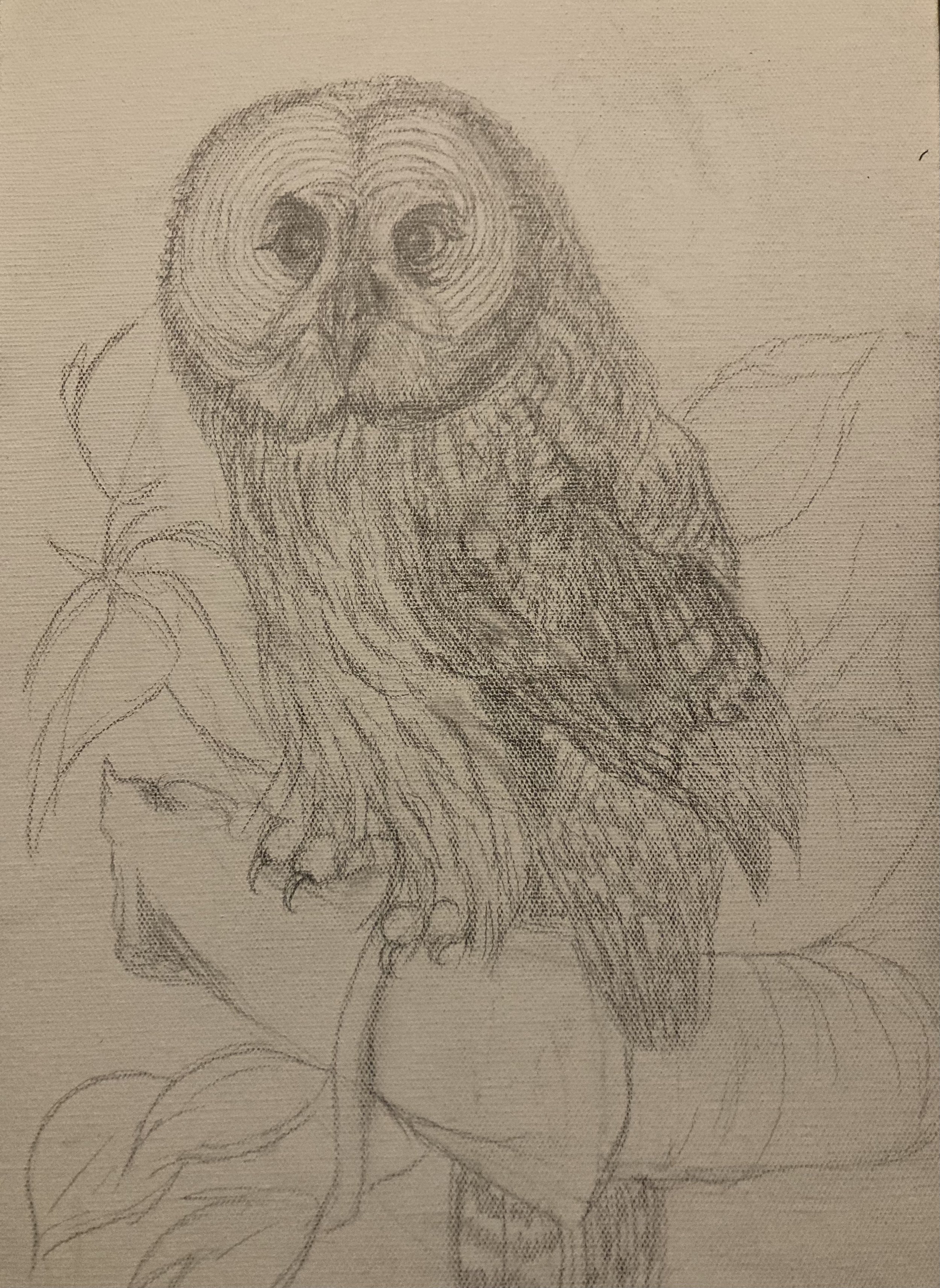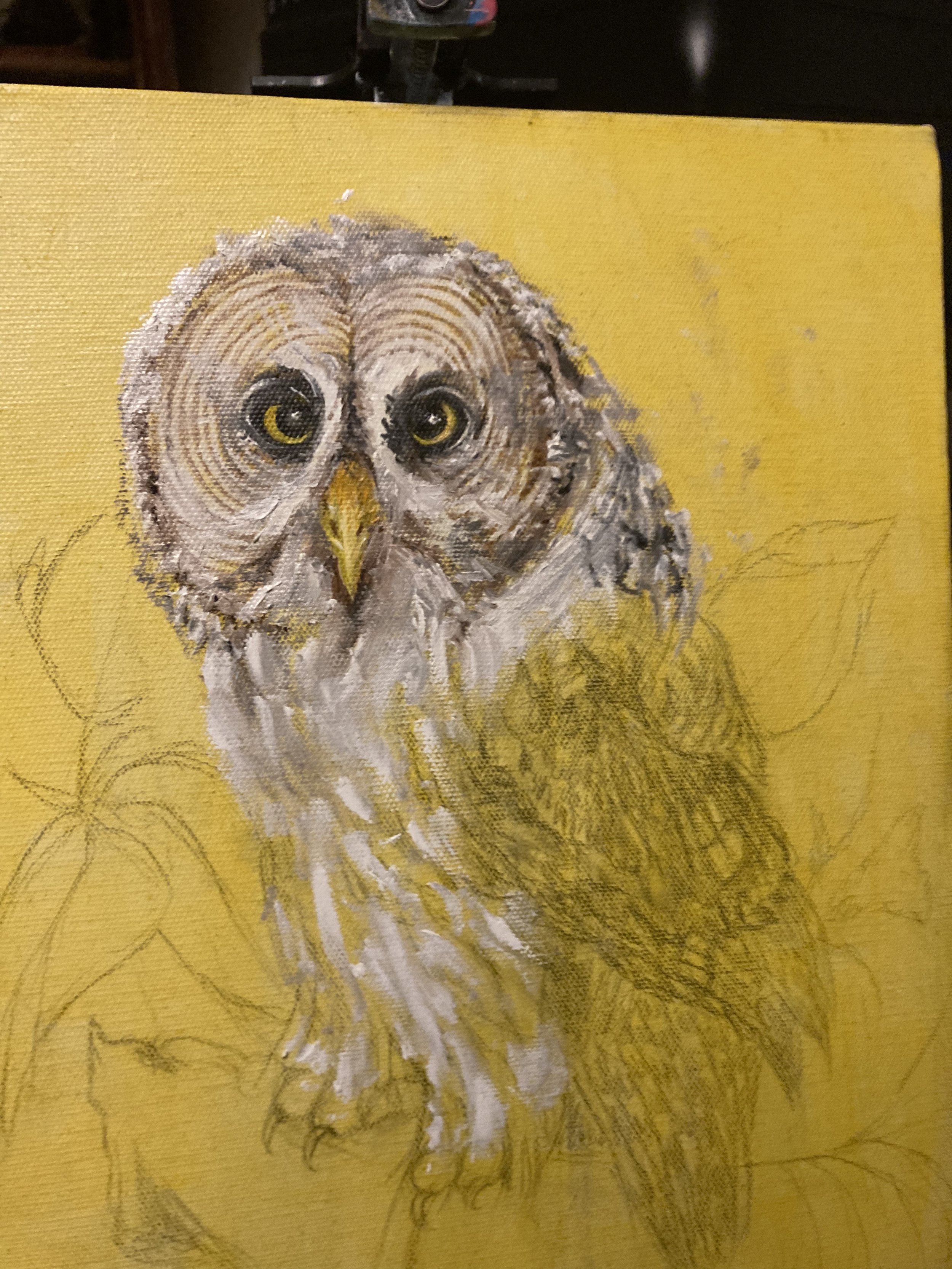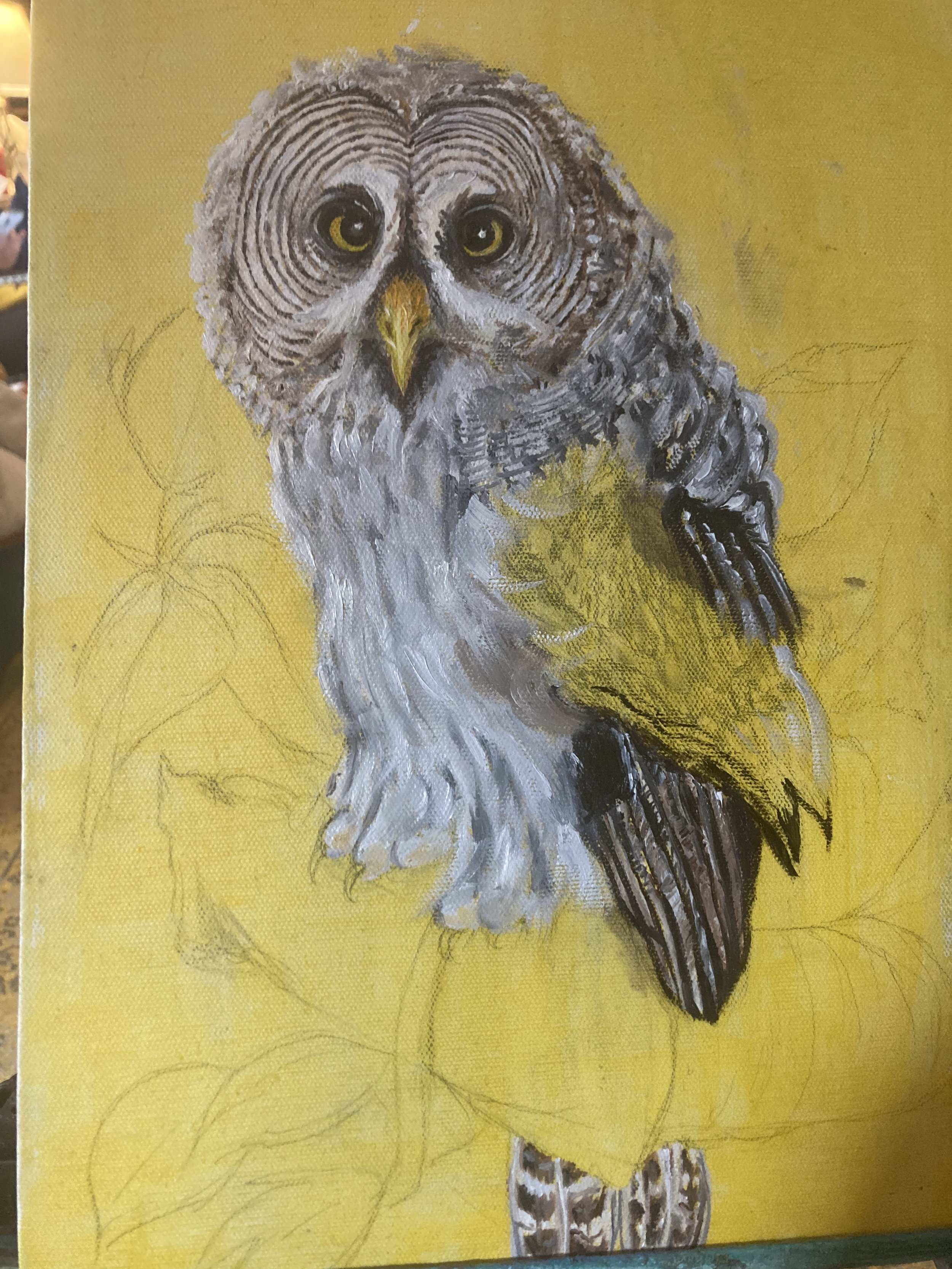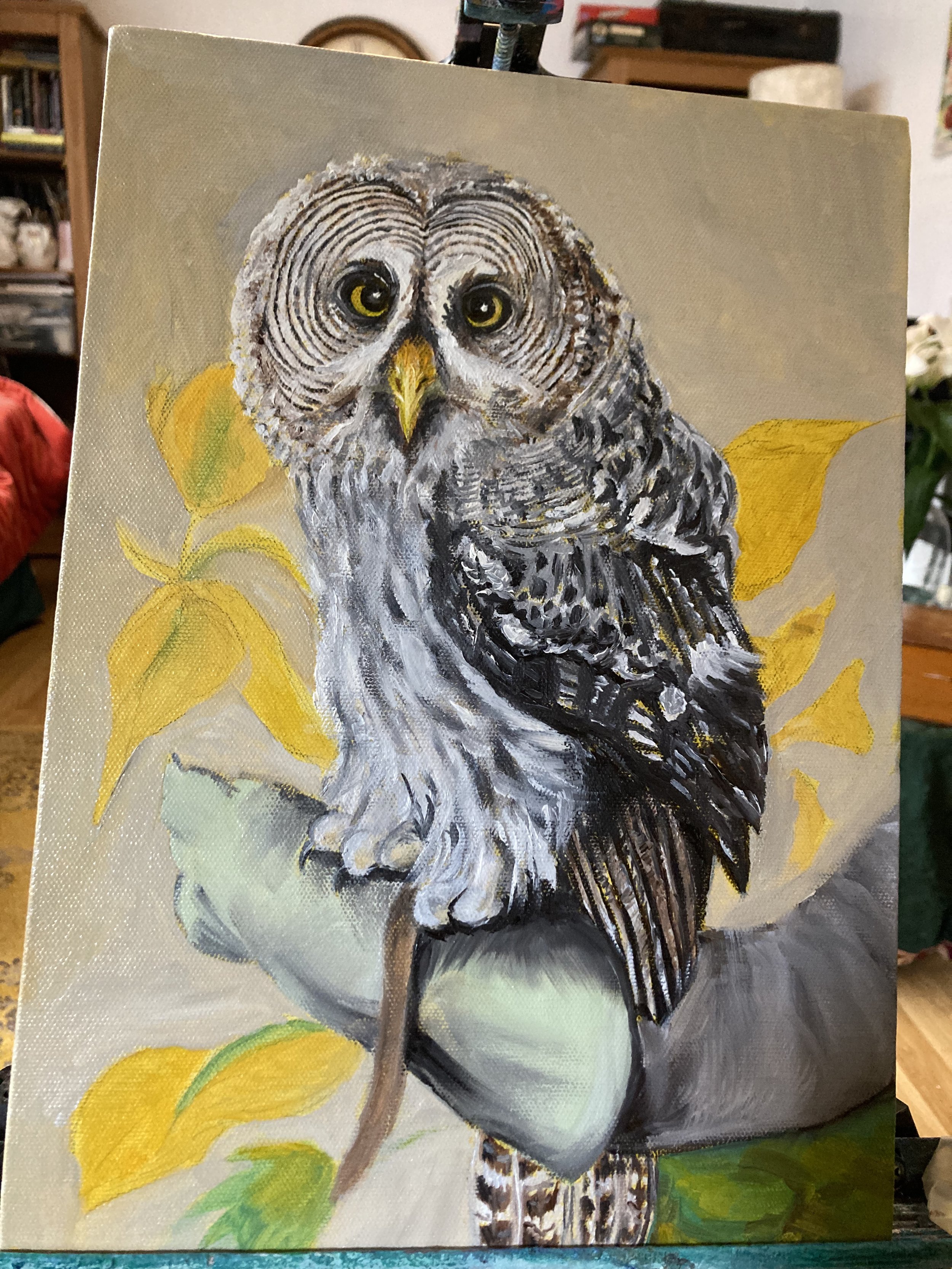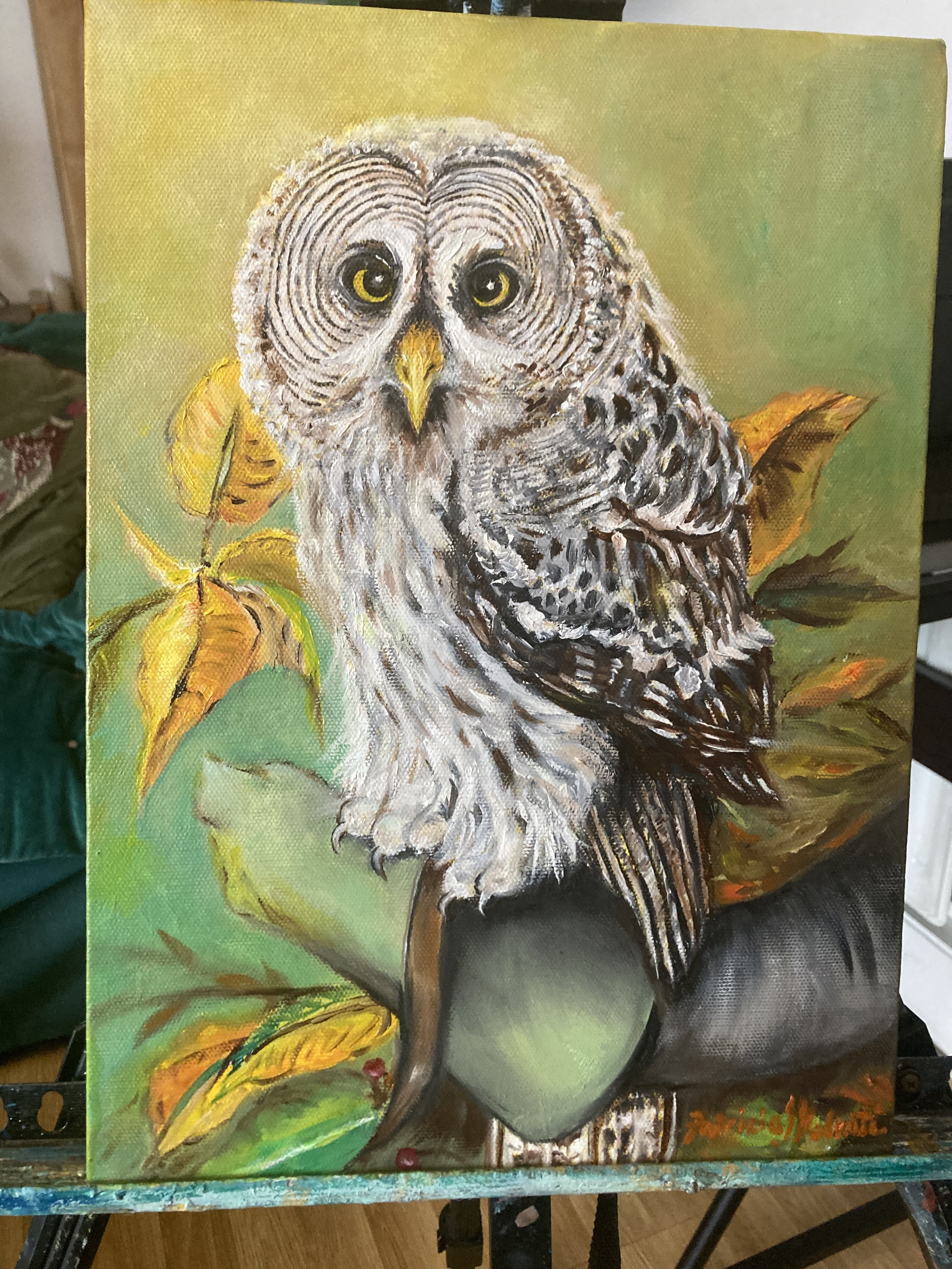Approaching a Commission of a Great Grey Owl
As a representational artist, realism comes first before any painting commission. Looking carefully at the subject or image to be painted from photographs, a realistic representation is produced, through my own knowledge of form, expression, stylisation, abstraction and with a sense of the animal or bird.
Over the years I have painted a few commissions. It is something I always enjoy as it challenges me and takes me out of my comfort zone. As a perfectionist, I approach commissions with a bit of anxiety and tension because it is important for me to get it right. I want to achieve my client’s vision of the painting which they have commissioned, whether it be a bird, pet, or even a person. Commissions need dedicated time to achieve the desired brief and are more demanding than purely painting what I like.
Getting to know the Client’s Vision
Firstly, getting to know and understand what the client’s vision for a painting requires. Most clients know what they want but it is only through conversations and draft ideas that you tease out the details, size, particular theme, background, colours, and scene to capture.
These conversations with the client are essential to the process. For the client to view your previous work on your website and get an idea of the style of painting they want created. Discussions about medium, canvas types, framing options.
Understanding the subject matter
As a bird and wildlife artist, I receive requests for pet portraits which importance means a lot to my clients. However, I still like to research the animal or bird, even if I am very familiar with them. I generally work from client photos, so it is important that the photos show the detail I need to capture.
Coming to an agreement
If the commission is agreed, from initial sketches and conversations, the contract it drawn up, outlining the size, medium, process, timeline, expectations on either side between client and artist, what to include or not include and costs, including any deposit upfront. Once that is all agreed, the process begins and the commission process is scheduled into my calendar.
During the process, images would be sent through documenting the progress of the commission. This is to reassure the client that the commission is proceeding along the agreed timeline and kept to the brief.
The process
I was recently commissioned to paint a Great Grey Owl for a client, to be given as a Christmas present to her friend. The photos of this beautiful owl were taken at an owl sanctuary. Here is the preliminary sketch for the client.
Preliminary Sketch
This was subsequently changed
The preliminary sketch was subsequently changed, but once the details had been agreed, the contract was drawn up and signed, and the commission process began.
Canvas Pencil sketch
The agreed sketch was made on a deep edged cotton canvas.
The sketch was then primed with Gamlin PVA size to fix the pencil draft to the canvas so that it would not bleed into the paint. The painting was then grounded with a fine layer of coloured underpainting in Cadmium Yellow acrylic paint.
Underpainting
Underpainting serves as a foundation for subsequent layers and provides structure and depth for the final artwork.
Preparing the pallet
The pallet prepared using black, white, grey tones in-between, burnt umber, shades of yellow, beige, red, greens and orange. Oil paints were applied in layers using Liquin medium thinner.
Beginning the oil painting
I began on the features of the bird, painting eyes and beak.
Owl’s features
Painting the face with lights, subtle feathers before adding the darks, and mid-tones.
The owls features would be touched up later.
Oil paint is applied to the main subject, building up layers using alla prima technique (wet on wet).
Owl’s body feathers
Touches of white paint are applied in small strokes with some darks.
Painting darks, mid-tones and highlights, with a combination of large and small brush strokes applied.
Adding owl’s feather detail
Working on tail feathers, face and back detail.
Beginning to paint the supporting arm and gauntlet.
Gauntlet and arm detail
Giving the owl a solid perch to rest upon. Adding shadow and depth.
Painting the background in oil paint. Sometimes acrylics are used for the background work.
Creating the background for the owl
A woodland scene to ground the owl in nature.
Finalising the background.
Building up layers into the background
Adding subtle tones of autumn leaves and greenery, adding more layers, shadows and depth. Any finishing details are applied or corrected.
The finished painting with artist’s signature.
The canvas is signed on the front, and the back of the canvas, with artist’s signature and details and the name of the paining.
When the oil painting is completely dry, finishing varnish is applied and sealed for longevity. A Certificate of authenticity is attached to the back of the painting.
Once the painting is complete, images are sent through to the client with options for framing. The frame is chosen, agreed upon with the client, and the framing is completed.
A light oak frame was chosen
Framed, certificate of authenticity added to the back, the painting is ready to be shipped.
The painting process took around 8 weeks to complete and the whole process from start to delivery, took approximately two months to finish for this oil painting. It was a pleasure to create this commission which I thoroughly enjoyed and the Client was delighted with the finished piece.
If you would like to know more about commissioning a painting from me then please get in touch.
‘Love, Joy, Create’ Blog – Please follow along with me and create your own inspirational art by learning about nature and the world around art@patriciajvalentiart.com
Patricia Valenti is a representational fine artist and life-long painter, based in Kent UK. Patricia began her artistic studies as a young girl. Her passion for nature and the beauty of animals and wildlife can be seen through her work, transforming familiar animals and wildlife into realistic interpretations with emotional impact. Her walks around the surrounding countryside near her home inspire her work.
